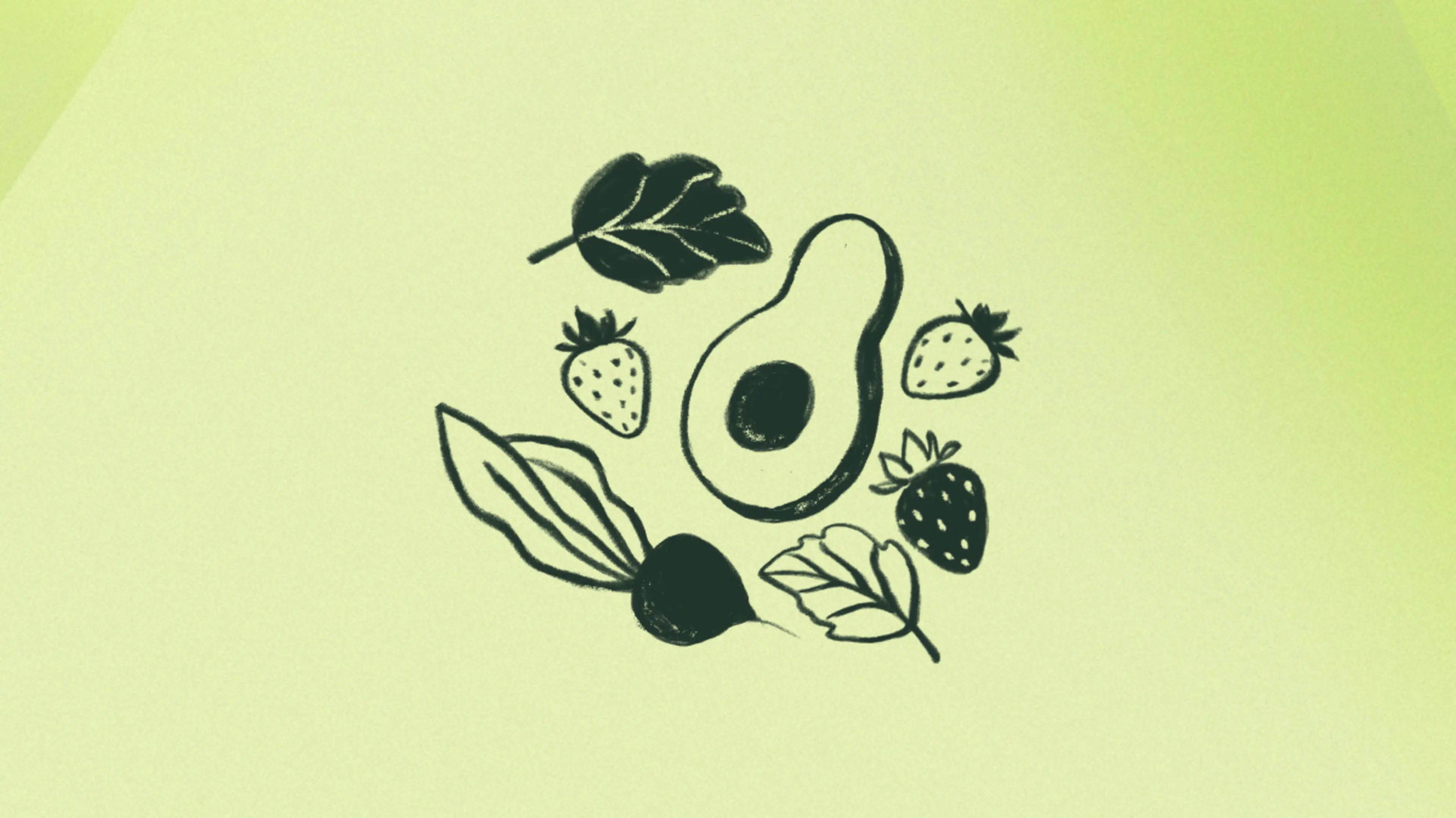TLDR: Women with PCOS face fertility challenges, but once that hurdle is cleared, certain issues still can come up when it comes to pregnancy and breastfeeding. We got advice from a clinical nutritionist on nutrition tips and other lifestyle changes that can help you navigate.
If you have polycystic ovary syndrome, or PCOS, it can be a struggle to get pregnant. Once you do get pregnant, the PCOS conversation tends to go quiet even though the challenges, particularly with diet and breastfeeding, continue.
I have PCOS and learned this firsthand when I was trying to conceive and during my pregnancy. First, I had a fear of never getting pregnant and anxiety during intense fertility treatment. After I finally got pregnant, I thought I had made it. Then came the pressures of the gestational diabetes glucose test, which people with PCOS have a higher chance of developing, and my personal struggle, breastfeeding. Both of these milestones were reminders that I’m dealing with a hormonal condition daily, and the PCOS side effects don’t stop even though I became pregnant—they just presented themselves in new ways.
I spoke with Janine Higbie, a clinical nutritionist for pre-and postnatal women about how PCOS can flare during the transition to motherhood and how those of us with the condition can combat the side effects.
Virginia Furnari: What role does insulin resistance play in pregnancy?
Janine Higbie: Insulin is a hormone made by your pancreas that helps bring glucose into your liver, fat, and muscle cells where it is used for energy. This process also maintains a delicate blood sugar balance. Insulin resistance occurs when your cells become less responsive to circulating insulin, increasingly requiring more to have the same effects.
Throughout pregnancy, placental hormones increase insulin resistance (IR). By the end of pregnancy, your body requires a 200-250% increase in insulin secretion1 to maintain healthy blood sugar. In a normal pregnancy, the body is able to adapt by producing more insulin. However, in some cases, the pancreas is unable to overcome the higher insulin demands, leading to elevated blood sugar and gestational diabetes. As many as 35-80% of women with PCOS experience insulin resistance2 prior to pregnancy. For these women, their pre-pregnancy IR can be exacerbated by pregnancy-related IR, increasing their risk of developing gestational diabetes.
VF: What are ways someone with PCOS can avoid developing gestational diabetes?
JH: While PCOS is a risk factor for gestational diabetes, it’s not a guarantee. In many cases, lifestyle changes prior to and during pregnancy can reduce IR and prevent or mitigate gestational diabetes mellitus3 (GDM). Here are some of the best approaches to reduce your risk:
Maintain a healthy weight prior to pregnancy. A body mass index (BMI) greater than 30 comes with a threefold increased risk of developing GDM4 than a BMI of 25 or less.
Stay active. Beyond helping to maintain a healthy weight, movement and exercise increase insulin sensitivity, combatting IR. The American College of Obstetricians and Gynecologists recommends a minimum of 150 minutes per week6 , or at least 5 days of moderate-intensity exercise for 30 minutes, and walking after meals to improve blood sugar control. Speak with your doctor before starting an exercise regime.
Get enough vitamin D. Vitamin D plays a role in insulin and glucose regulation. Several studies have demonstrated that women with low levels of vitamin D are at increased risk for GDM5 and supplementation can reduce that risk. Your doctor can order a simple blood test to check your levels. Getting adequate sun exposure is the best way to maintain healthy vitamin D, but in the fall and winter, most women need supplementation as food sources alone are not enough.
Focus on a nutritious, low-glycemic diet. Low glycemic doesn't mean no carbohydrates. Eating the right kind of carbohydrates and pairing them with lean protein and healthy fats is critical to getting the energy and nutrients you need while maintaining healthy blood sugar. Highly processed carbs like breads, pastas, rice, pastries, and sugary foods and drinks increase insulin needs, further taxing an already strained pancreas. Instead, focus on nutrient-dense carbs like vegetables, whole fruits, legumes, and whole grains in moderation. You can find more details on my recommendations for the optimal PCOS Diet to boost fertility, support a healthy pregnancy, and maintain balanced hormones at any time.
VF: What are some quick and easy PCOS-friendly recipes?
JH: I love any meal that comes together quickly and can be cooked in one pan for easy cleanup. This cauliflower rice stir fry is a great option for a quick, low-glycemic, veggie-loaded dish that is satisfying and nutritious.
VF: How do you satisfy pregnancy cravings when you have PCOS?
JH: I work with so many women who really struggle with stress and guilt around this topic. First, it’s important to know that it’s normal and okay to have a less-than-ideal diet in your first trimester. Nausea, fatigue, and food aversions are all very real and play a role in your dietary intake. Check-in with yourself to understand why you might be craving something. If you’re craving a piece of toast or bagel because you’re nauseated and need something in your stomach? Go for it. Try to add a little nut butter for protein or avocado for fat. Either would provide additional nutrients and help prevent nausea related to a blood sugar crash.
Similarly, are you craving pickles? That may be your body signaling a need for increased salt, or simply because cold sour foods are typically well tolerated despite nausea. Again, go for it. Maybe add in some olives for that same salty flavor with heart-healthy fat.
Contrast that with the craving for a pint of Ben & Jerry’s. That may be more related to enjoying dessert and the cultural expectation that you get to eat a certain way during pregnancy. Honor those cravings the same way you would prior to pregnancy, meaning enjoy them guilt-free within moderation. Pregnancy only requires an additional 300 calories/day7 , so the old saying “eating for two” is misleading. Discuss cravings with your doctor or a nutrition professional because some may be indicative of a nutrient deficiency. For example, craving ice may be a sign of anemia, or craving sweets may be a sign you’re not eating enough healthy fats.
VF: What are some challenges of PCOS and breastfeeding?
JH: Research is mixed8 on whether PCOS alone increases the risk for low milk supply. Several factors associated with PCOS like obesity, insulin resistance, and excess androgens are known to inhibit milk production.
Focusing on a nutrient-dense, low-glycemic PCOS diet can help manage hormone and weight-related obstacles to breastfeeding. It’s also important to make sure you’re eating and drinking enough. You will need to ensure an adequate amount of calories and hydration to maintain your milk supply. Navigating breastfeeding issues can be incredibly isolating and challenging (trust me I know!). Meeting with a certified lactation consultant who can guide and support you in your breastfeeding journey can be incredibly beneficial, PCOS or not.











